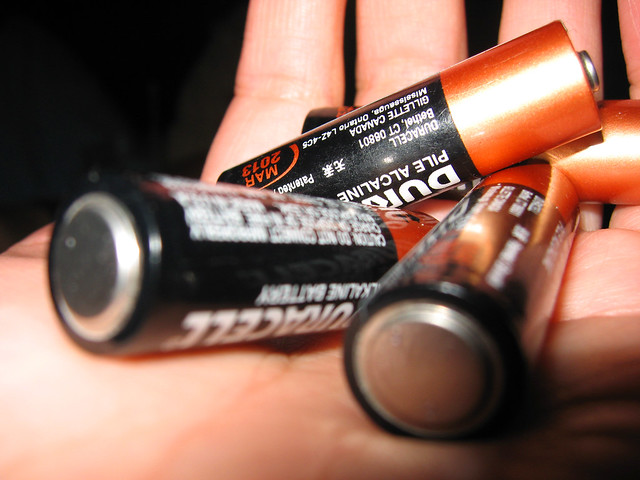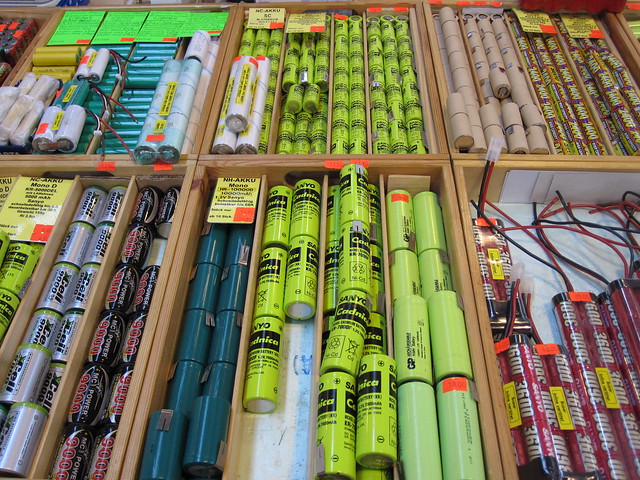Keep Lithium-Ion Battery healthy
Aug 28, 2019 Pageview:1343
Lithium-Ion batteries are the latest battery technology on the market. Apart from this, they are the best in terms of performance and power.
However, they face the same problem as any other battery – degradation. It is even better this chemistry because they have a longer life span than most others. But they are still a problem for many electronic devices. You will charge your phone or laptop full, and only after a few hours, they leave you juiceless.
Why do Li-Ion batteries lose capacity?
How many times have you found yourself with a dead battery on your phone? Or consider this, you left your house to meet a friend in another city. Upon reaching there, you notice your phone sending low power notification at any given time.
And since you don’t know where you are and must meet your friend, you are left with no option but to go hunting got power outlets. You waste a lot of time searching until you realize the day is almost gone.
Or, you are chatting with a friend, and suddenly the sign of “sorry, my phone is about to die.” Such statements often end with “goodbye” even before you finish your business.
Often, and far less obvious, such issues are as a result of low capacity. This is nasty behavior for lithium-based batteries, including the newest lithium polymer chemistry. They lose capacity over time, and before you know it, they die out completely.
When there is an issue with a battery, its chemistry is the start. Normally, ions flow freely between the Anode and cathode of a healthy battery. During charging, the ions are forced from the anode to the cathode. And when in use, the ions change their direction back to the anode.
In other words, the anode is positively charged, while the cathode carries the negative charge. The ions, therefore, keep flowing from one side to the other for as long as you use the battery through the electrolyte.
This process wears out the cathode. And since this is the element the energy of the release from the battery into your gadgets, its underperformance means the whole battery is poor. This process causes the reduced capacity.
How long does the process take?
To understand this, we need to start with an understanding of what charge cycles mean. When you fully charge the battery, then use it until discharged, you have achieved one life cycle. In other words, it is the period between a full charge and a full discharge of a battery in use.
The charge cycle varies between batteries. Mostly, the manufacturer will indicate on the battery how many cycles you will get. It is approximated at when the battery is under maximum use. This number can vary as well depending on the use. Other factors that affect the charge cycle include temperature and handling.
Now, a high-end lithium-ion battery has about 700 charge cycles. Beyond this, the battery can lose about 20%.
Think of it this way, every time you charge your phone, a few seconds are deducted from its maximum life. With time, these seconds grow into minutes and later into hours. If your battery used to hold power the whole day, it reduces to a few hours per day.
You cannot avoid this degradation process. Other factors that speed up this process include erratic charging and heat. Therefore, bad usage can be made your battery lose capacity even faster.
Is it ok to leave a lithium-ion battery on the charger?
There are many myths around charging lithium-ion batteries. One of them is that your battery will overcharge of you leave it on the charge through the night. Well, this is a matter that many experts have argued on. The truth is, leaving the battery on charge all night is not dangerous.
But that does not mean that there are no consequences. It makes your battery age slightly faster.
Overcharging is not it though. When the battery hits 100%, it does not continue pumping in current into the battery and does not certainly affect its capacity. Some say this can cause your battery to explode as it has been in many cases.
There is a legitimate origin to this myth. Several batteries have heated up and exploded, apparently because they were left charge. However, some devices have exploded while in use.
Modern devices are smarter. You may have noticed that charging often start faster and reduces in speed as it nears 100%.
There is some truth here, though. As mentioned above, heat and high charging voltage cause lithium-ion batteries to degrade faster. A charge of between 80 and 100% cause more damage to your battery than a charge below this. Therefore, it is better to keep an eye on your batteries.
How do you keep your lithium-ion battery healthy?
Here are five top ideas to keep your lithium-ion battery healthy for long:
Avoid high temperatures
Always use and keep them at room temperature. Ensure the heat does not rise above 25 degrees C or drop below 20 degrees C. Do not ever allow your batteries to overcharge and heat up.
A high capacity lithium battery is better than a spare
Batteries deteriorate, whether in use or not. Carrying a spare battery, therefore, does not help since it does not gain any value. You will be shocked to open a battery you have been saving for emergencies only to find it empty. Instead of going through such, get a battery with higher capacity.
Partial discharge and charge are better than full ones
Lithium-ion batteries don’t have a charge memory. A deep discharge, therefore, may render them useless. Consider discharging them partially at least until the 30th cycle.
Do not completely discharge
The minimum voltage for most Li-ion batteries is 2.5V. Anything below this is not good for your batteries. Do this for safety reasons as well, especially for batteries that have been stored for several months.
Discharge to 40% when storing for an extended period
Do not store batteries fully charged. This is because oxidation is at the highest rate, causing you batteries to degrade faster. A 40% charge and stored in a dry, cool place should be great.
There is no denying lithium-ion batteries are the best chemistry on the market. You can get up to 500 charge cycles. But that depends on how to take care of them. The above guideline should give tell everything you need to do.
- Prev Article: Freezing Li-Ion Battery – How long can it run?
- Next Article: 18650 Battery Plastic Tube-battery Accessory Introduction
Leave Message
Hottest Categories
-
Hottest Industry News
-
Latest Industry News











